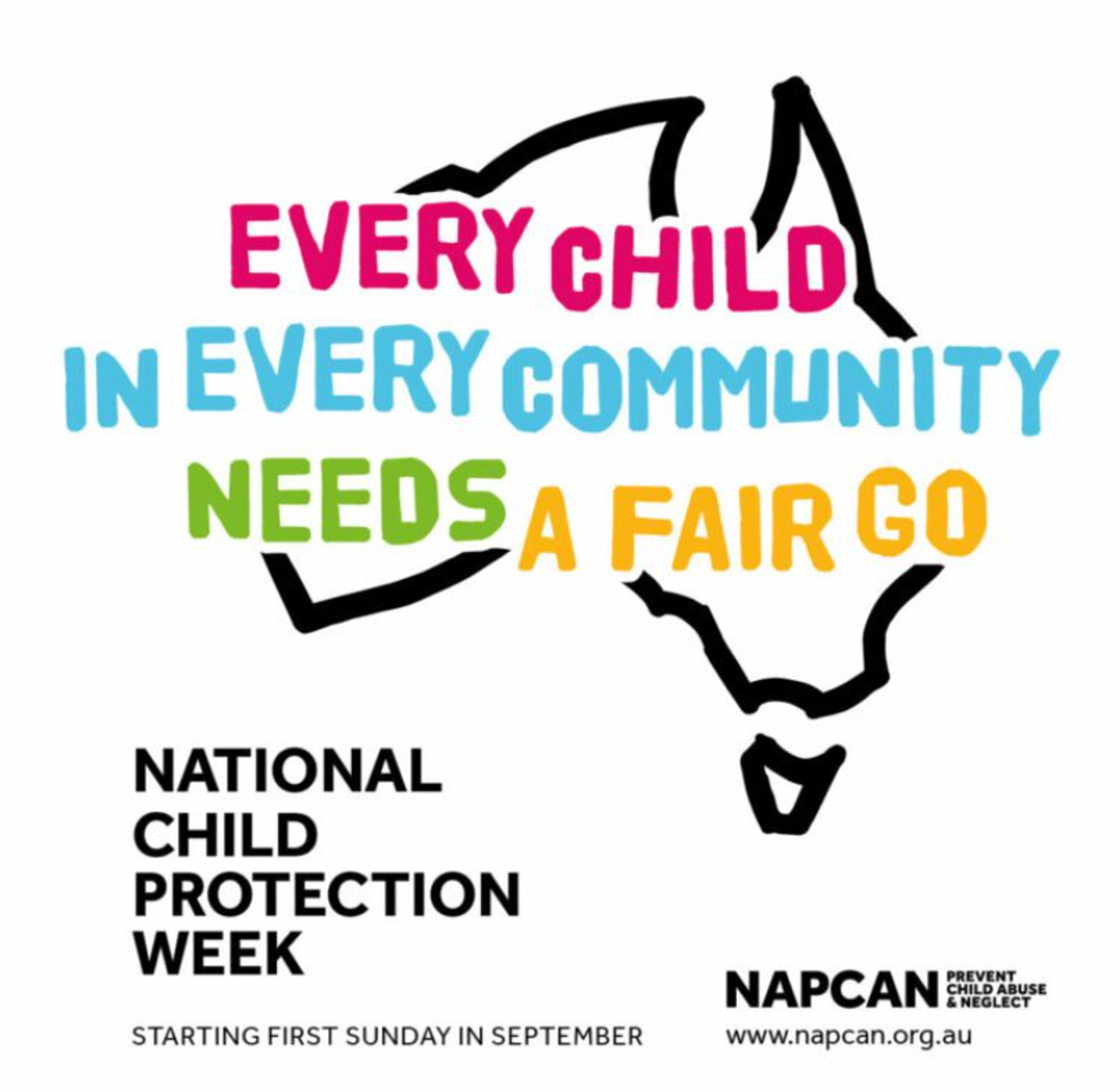National Child Protection Week: 1-7 Sept - Parent Information

This year National Child Protection Week will continue to champion the message ‘Every child in every community needs a fair go’. This message captures the essence of National Child Protection Week which aims to promote a safe and supported life for every child, now and into the future. Below is some important information for parents to discuss with their children:
Sleepovers—those late-night adventures filled with giggles, secrets, and pillow forts—are a cherished part of childhood. But as parents, we grapple with the question: Are sleepovers safe or risky? Let’s explore the rewards and risks, empowering you to make informed decisions for your family.
The Great Sleepover Debate
Rewards:
- Independence: Sleepovers allow kids to practise separation from caregivers, fostering independence.
- Flexibility: Children learn to adapt to different family cultures and routines.
- Memories: Many adults fondly recall sleepovers as cherished childhood memories.
Risks:
- Abuse Concerns: Some parents worry about their kids being exposed to abuse while away from home.
- Behavioural Disruptions: Sleepovers can lead to disrupted sleep schedules and behavioural issues.
- Health and Safety: Consider food allergies, screen time, and exposure to illness.
Your Decision Matters
As parents, it’s essential to examine our motivations. If fear drives our choices, we should pause and reflect. Balance safety with allowing our children to explore the world. Remember, there’s a fine line between caution and overprotection.
Tips for Safe Sleepovers
- Know the Host: If your child is sleeping over at a friend’s house, ensure you know and trust the host.
- Communication: Teach your child about boundaries, good touch vs. bad touch, and when to seek help.
- Alternatives: If sleepovers don’t feel right for your family, find other opportunities for self-efficacy and adaptability.
- Preparation: Actively discussing with your child how to be safe on a sleepover is recommended. Consider using the linked resources to have an interactive conversation with your child about sleepover safety.
Swoosh and Glide Story time - bedtime story about safe online behaviour at sleepovers
7 Tips for Safer Sleepovers - topics to cover with your child before the sleepover.
Remember, there’s no one-size-fits-all answer. Trust your instincts, consider the risks, and make the best choice for your child.
Wishing you courage and wisdom on this parenting journey!
🌟 Resources:
- Child Experts Share Rewards and Risks
- Navigating the Complexities of Sleepovers
- Rethinking the Value of Sleepovers
‘Every Conversation Counts’ Talk to your child about body safety during National Child Safety Week.
The thought of any adult sexually abusing a child is terrifying, especially for parents and caregivers. However, we can empower our children by providing them with information to recognise unsafe situations and teaching them how to respond effectively. One powerful approach is the "One Talk at a Time" initiative, which encourages proactive conversations between adults and children to prevent child sexual abuse [1].
What is body autonomy? It's the idea that all people have the right to govern what happens to their own bodies. By teaching children about body autonomy, we empower them to feel in control and less likely to fall prey to sexual abusers. Here are some essential steps for parents to promote body autonomy:
- Teach Real Names: Start by teaching your child the real names of their body parts. Normalise discussions about all areas of their bodies.
- Boundaries: Explain who can look at or touch their private parts and under what conditions (e.g., doctors for health checks).
- Saying "No": Encourage your child to say "no" if they don't want to be touched or hugged, even by adults.
- Secrets: Differentiate between safe secrets (like surprise birthday party plans) and secrets that should always be shared with a trusted adult.
Conversations have the power to prevent child sexual abuse. While you may not be an expert, no one knows the children in your life better than you do. Start by learning about child sexual abuse, including where and how it occurs, and explore tools and resources to facilitate these crucial conversations.
Remember, prevention begins with one talk at a time. Let's work together to keep our children safe and end child sexual abuse. 🌟
For more information, visit the One Talk at a Time campaign. If you suspect immediate danger, call Triple Zero (000). [1]
References:
- One Talk at a Time | National Office for Child Safety
- Preventing Childhood Sexual Abuse, One Talk at a Time
- How to Talk with Kids About Personal Safety and Sexual Abuse
Note: This article is for informational purposes only and does not replace professional advice. Always consult with a qualified healthcare provider or counsellor. 🌟
Breaking Point with Dr Justin Coulson
Wednesday 11 September from 7.00pm – 8.00pm
Join Dr Justin Coulson, Australia’s leading parenting expert, as he unpacks the mental health crisis enveloping our kids. He’ll cover:
- The root causes behind the deteriorating state of mental health, and who (or what) is responsible
- The tools you need to reverse this trend for your children
- Science-backed, relationship-focused strategies to remedy school refusal
- Realistic approaches for managing screen time in a way that protects your child’s wellbeing without completely alienating them from their peers
- Creating margin in your home and family life to protect and promote mental wellness
To register click here.